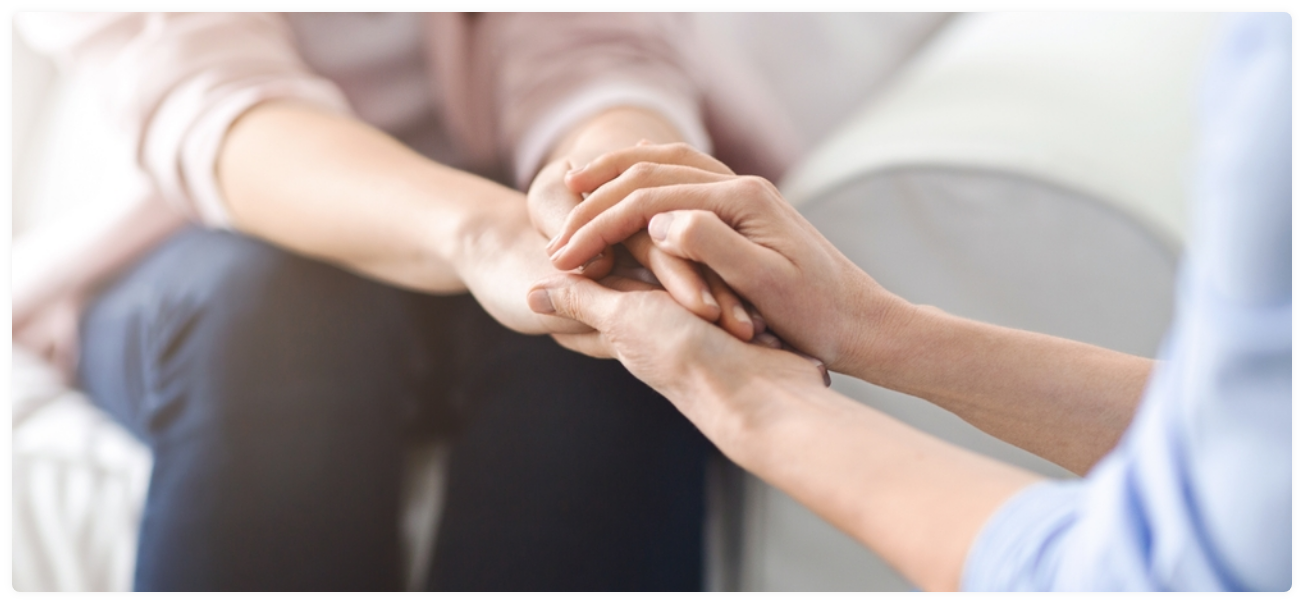Our dedication lies not just in treating symptoms but in addressing the root causes, offering a holistic approach that integrates the best of therapeutic practices with the warmth of community support.
Bipolar Disorder Treatment in Randolph, NJ
Bipolar disorder is a complex mental health condition that affects the emotional and functional well-being of individuals by causing significant mood swings, from manic highs to depressive lows. These mood changes can severely impact relationships, productivity, and daily functioning. At CTRLCare Behavioral Health in Randolph, NJ, we offer specialized treatment for teens, young adults, and adults struggling with bipolar disorder, helping them to achieve stability and improve their quality of life.
In today’s digitally-driven world, the pressure of technology misuse can exacerbate the symptoms of bipolar disorder, making professional treatment even more crucial. With a unique focus on addressing technology overuse, CTRLCare provides comprehensive care for those looking to manage bipolar disorder effectively. If you or someone you love is dealing with bipolar disorder, our compassionate team is here to guide you on the path to recovery.
Understanding Bipolar Disorder
Bipolar disorder is a mood disorder characterized by dramatic shifts in mood, energy levels, and behavior. These shifts include periods of mania or hypomania—where individuals feel abnormally elated, energized, or irritable—and depressive episodes marked by feelings of sadness, hopelessness, or fatigue. Recent statistics show that approximately 2.8% of U.S. adults experienced bipolar disorder over the past year.
Types of Bipolar Disorder
Bipolar disorder encompasses several distinct subtypes, each with unique characteristics:
Bipolar I Disorder: Defined by manic episodes lasting at least seven days or by severe mania requiring hospitalization. Depressive episodes may also occur.
Bipolar II Disorder: Characterized by patterns of depressive episodes and hypomanic episodes, which are less severe than manic episodes.
Cyclothymic Disorder (Cyclothymia): Involves periods of hypomanic symptoms and depressive symptoms lasting for at least two years (one year in children and teens) without meeting the full criteria for either hypomanic or depressive episodes.
Common Signs & Symptoms of Bipolar Disorder
Symptoms of bipolar disorder manifest differently between phases of mania/hypomania and depression. Understanding these symptoms can help identify when professional intervention is needed:
Manic/Hypomanic Episode Symptoms:
- Increased energy or activity levels.
- Unusually high self-esteem or grandiosity.
- Decreased need for sleep.
- Rapid speech or racing thoughts.
- Increased risk-taking behavior, such as excessive spending or impulsive decisions.
Depressive Episode Symptoms:
- Pronounced feelings of sadness, emptiness, or hopelessness.
- Loss of interest or pleasure in most activities.
- Changes in appetite and weight.
- Difficulty sleeping or sleeping too much.
- Fatigue or lack of energy.
Early diagnosis and targeted treatment at CTRLCare Behavioral Health help individuals manage these symptoms and prevent future episodes, promoting a more balanced and fulfilling life.
The Impact of Bipolar Disorder Across Different Life Stages
Bipolar disorder doesn’t discriminate by age, affecting individuals at different life stages in unique ways. At CTRLCare, we provide tailored care that supports clients from adolescence through adulthood.
Teens with Bipolar Disorder
For teenagers, bipolar disorder not only impacts academic performance but may also affect self-esteem and social relationships. Mood swings and impulsivity can lead to risky behavior, conflicts, or academic decline. Teens struggling with bipolar disorder benefit greatly from therapies focused on emotional regulation and coping skills, both of which are part of CTRLCare’s adolescent treatment approach.
Young Adults with Bipolar Disorder
As young adults transition into major life events such as college, new careers, or independent living, the pressures of these changes can intensify bipolar symptoms. Targeted treatment for bipolar young adults helps them build resilience and coping mechanisms to manage stressors while pursuing their aspirations.
Adults with Bipolar Disorder
In adults, untreated bipolar disorder may result in challenges maintaining consistent employment, nurturing relationships, or fulfilling personal and professional goals. Many adults benefit from therapy combined with medication to control mood swings, prevent relapse, and regain equilibrium in their lives. Our bipolar treatment program for adults in Randolph, NJ offers clients full access to multiple specialists, including counselors, psychiatrists, case managers, and more.
Professional intervention not only addresses these challenges but also supports individuals in developing skills necessary for long-term stability and success.
Bipolar Disorder and Technology Misuse
In today’s digital age, technology misuse presents a growing concern intertwined with mental health challenges, including bipolar disorder. The rewarding, always-on nature of technology can exacerbate the impulsive behaviors and sleep disruptions common in bipolar disorder, further complicating recovery.
How Technology Affects Bipolar Disorder Symptoms:
- Sleep Disruption: Late-night screen time can interfere with sleep patterns, exacerbating manic or depressive episodes.
- Impulse Control Issues: Online shopping, gambling, or other addictive behaviors can be more tempting for those with manic tendencies.
- Social Isolation: Over-reliance on digital communication can reduce face-to-face interactions, increasing feelings of loneliness or disconnection.
At CTRLCare, we address technology use in the context of bipolar treatment, helping clients establish healthier tech habits that support their recovery.
Our Comprehensive Approach to Bipolar Disorder Treatment in Randolph, NJ
At CTRLCare Behavioral Health, we provide comprehensive support to manage bipolar disorder while addressing the impact of technology on your mental health. Our personalized treatment plans include:
- Therapeutic Support: We offer evidence-based therapies like Cognitive Behavioral Therapy (CBT) and Dialectical Behavior Therapy (DBT) to help clients understand and manage mood swings, develop healthy coping strategies, and create emotional stability.
- Technology Wellness: Our programs focus on educating clients about the effects of technology on mental health and provide practical tools to establish a balanced relationship with digital devices.
- Family Involvement: Families play a critical role in the healing process. We work closely with family members to build understanding, improve communication, and create a supportive space for lasting success.
- Ongoing Evaluation: We make sure to check in regularly to see how things are going and tweak treatment plans when necessary so our clients stay on the right path to reach their goals.
Our Comprehensive Approach to Bipolar Disorder Treatment in Randolph, NJ
CTRLCare Behavioral Health takes a holistic and integrative approach to bipolar disorder treatment, ensuring each client receives comprehensive care tailored to their specific needs. Our dedicated team of professionals is committed to understanding the complexities of bipolar disorder and offering a range of treatment modalities to promote recovery and well-being.
Components of Our Morris County, NJ Bipolar Disorder Treatment Program
Each component of our program plays a crucial role in guiding clients toward emotional and mental well-being, providing them with the tools, support, and strategies needed for lasting progress. Below is an overview of what makes our Morris County bipolar disorder treatment unique and effective.
Thorough Assessment and Diagnosis
Treatment courses are personalized from the start with an in-depth assessment of symptoms, personal history, and current challenges, allowing our clinicians to design an individualized treatment plan that aligns with each client’s goals.
Psychotherapy for Bipolar in Randolph, NJ
Tailored psychotherapy is at the heart of our treatment approach, combining evidence-based methods with individualized care:
- Cognitive Behavioral Therapy (CBT): Helps clients recognize and change negative thinking patterns and behaviors that contribute to mood swings.
- Dialectical Behavior Therapy (DBT): Focuses on teaching skills for emotional regulation, stress management, and interpersonal effectiveness.
Medication Management
For many individuals, mood stabilizers such as lithium, anticonvulsants, or antipsychotics play a crucial role in managing symptoms effectively. Our psychiatric team provides careful medication management to ensure the best combination and dosage for each client, minimizing side effects and improving stability.
Family Therapy and Support
Bipolar disorder affects not only the individual but also their loved ones. Family therapy helps strengthen relationships through improved communication, understanding of the disorder, and strategies for managing challenges together.
Technology Awareness and Management in Randolph, NJ
With a focus on moderating technology use, our program teaches clients to:
- Set healthy boundaries around screen time.
- Replace compulsive online habits with more constructive activities.
- Reconnect with offline social and community engagements that enrich well-being.
Holistic and Wellness-Focused Activities
Our approach values mental and physical well-being through holistic practices:
- Mindfulness and Relaxation Techniques: Such as meditation to foster calmness and awareness.
- Physical Exercise Programs: To help manage energy levels and improve mood.
- Nutritional Guidance: Supports overall health and promotes stable mood regulation.
FREQUENTLY ASKED QUESTIONS
Your Questions Answered: Support and Guidance for Bipolar Disorder

APPOINTMENT
Get Your Online Consultation
Copyright 2026 CTRL Care | All Rights Reserved




